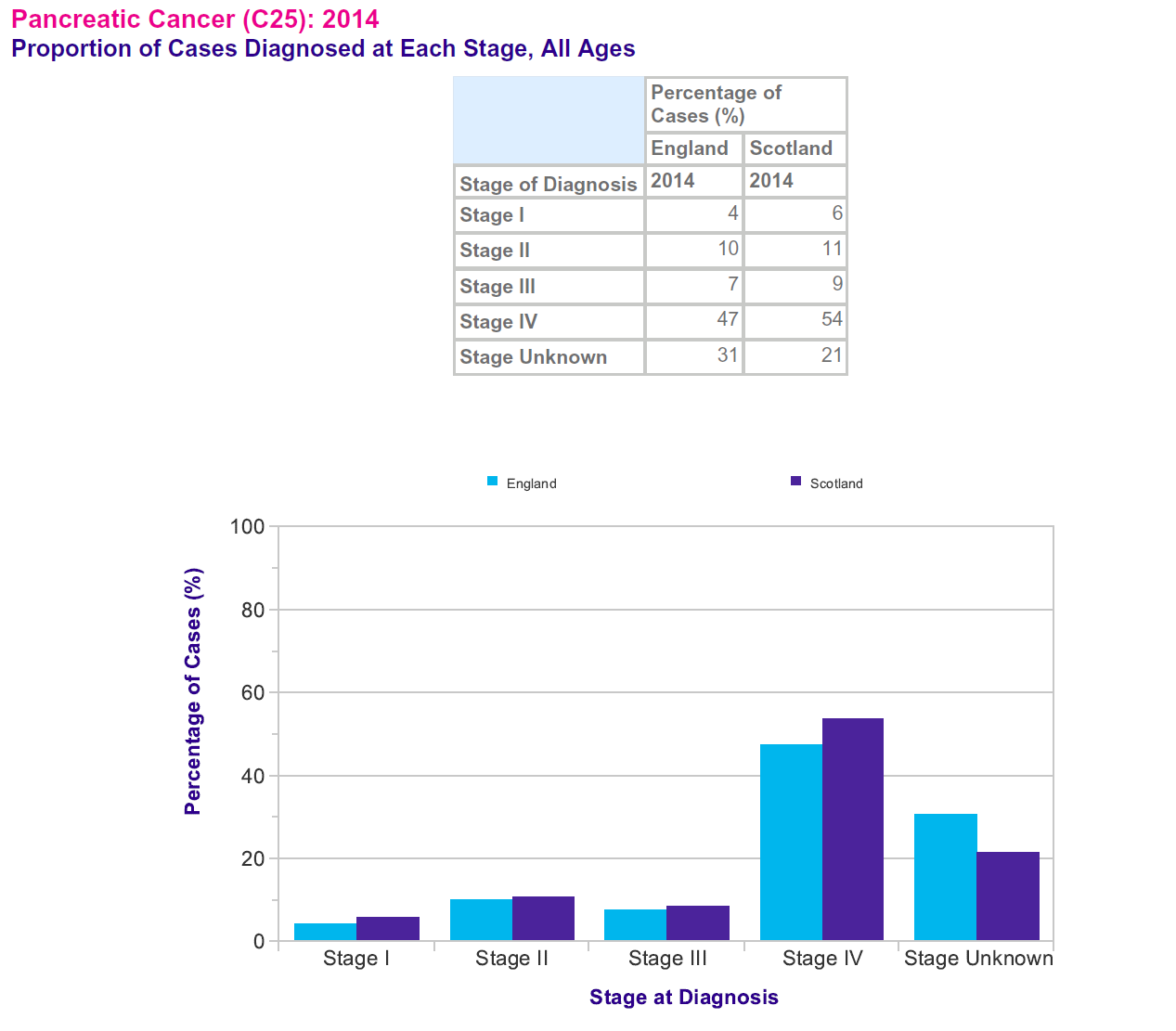Pancreatic cancer
A disease of later life, pancreatic carcinoma is the third most common cancer of the gastrointestinal tract and the sixth most common cause of cancer deaths.
Pancreatic cancer is the fifth most common cause of cancer death in the UK, with an annual incidence of nearly 9,600
- on average, 23 people die each day from the disease
- UK has one of the worst survival rates in Europe, with average life expectancy on diagnosis just 4 to 6 months and a relative survival to 1 year of approximately 20%
- only 3% of people survive for 5 years or longer. This figure has not improved much in over 40 years, and it is not yet clear how the more recent trend of increased surgery and adjuvant chemotherapy will affect survival.
Because of late diagnosis, only approximately 8% of people with pancreatic cancer are eligible for potentially curative surgery
- however, people have up to a 30% chance of surviving 5 years if their tumour can be surgically removed and they have adjuvant chemotherapy
- symptoms of pancreatic cancer are non-specific
One survey found that 40% of people diagnosed with pancreatic cancer in England had visited their GP 3 or more times before the diagnosis was made
- fifty per cent of people are diagnosed as an emergency in A&E
70% of tumours occur in the head of the pancreas in proportion to the amount of tissue in different parts of the pancreas.
Progress is insidious. There is early regional lymph node involvement and spread to the liver. The tumour may metastasize to bone and lung.
Less common endocrine tumours of the pancreas such as glucagonomas and insulinomas may occur.
Pancreatic cancer patients with a known stage are most commonly diagnosed at stage IV (68-69%). More patients with a known stage are diagnosed at a late stage (79% are diagnosed at stage III or IV), than an early stage (21% are diagnosed at stage I or II (2)

Reference:
Related pages
Create an account to add page annotations
Annotations allow you to add information to this page that would be handy to have on hand during a consultation. E.g. a website or number. This information will always show when you visit this page.